
Tre volumi
Il volume raccoglie il tributo della comunità scientifica alla figura del prof. Umberto Bertini, grande scienziato e studioso.
cod. 10365.56
La ricerca ha estratto dal catalogo 36 titoli

Tre volumi
Il volume raccoglie il tributo della comunità scientifica alla figura del prof. Umberto Bertini, grande scienziato e studioso.
cod. 10365.56
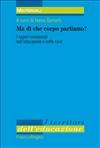
I saperi incorporati nell'educazione e nella cura
Voci della pedagogia, della filosofia, della psicologia, dell’antropologia, della sociologia, delle neuroscienze e della medicina riflettono sul tema del corpo: pur nella loro diversità le loro riflessioni sono accomunate dall’identica tensione di immaginare scenari all’interno dei quali il parlare “del” corpo si coniughi con la scommessa di parlare “dal” corpo.
cod. 940.1.4
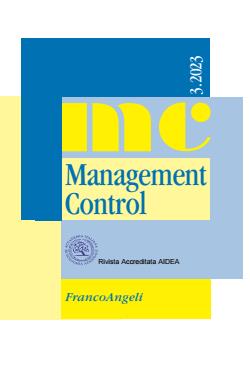


This article offers some reflections and insights to interpret the economic impact of the current pandemic crisis, and similar crises that could arise in the future, and the conditions for recreating sustainable development. Firstly, to move from evaluating crisis to generating economic value and sustainability requires a new corporate governance approach for interacting with the social and environmental context, integrating risk management and performance man-agement (Marchi, 2019; Greco, D’Onza, 2020). Sustainability can be reinforced by adopting a new theory of value created for all stakeholders, included suppliers, customers, employees, the territory and the social community, but also for the en-vironment and for the company itself, ensuring adequate remunerations of the re-sources and conditions of lasting economic equilibrium of companies (Giannessi, 1960). To guarantee a long-term economic balance together with social, environmental and corporate sustainability, the role of measurement and control systems is fun-damental. In this regard, the following aspects can be highlighted (Marchi, Paolini, 2020): 1) integrated accounting and budgeting systems must be developed with an in-come perspective; 2) excessive emphasis on specific performance indicators, espe-cially financial ones, must be avoided, in order to pass to a "systemic reading" of the set of indicators at an economic-social level; 3) a circular choice and an ade-quate remuneration of the production factors in the supply network must be guar-anteed in order to increase the value created internally in the network, with the contribution of strategic suppliers who must be partners of the company; 4) finally, a "culture of sustainability" must be implemented in the personnel planning, control and incentive systems (integrating financial indicators with sustainability indicators) and not only in the reporting systems for the outside.


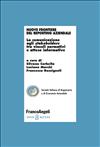
La comunicazione agli stakeholders tra vincoli normativi e attese informative
Il tema della comunicazione esterna agli stakeholders è da sempre, per l’aziendalista, un’area di studio di estrema attualità, nel cui ambito, l’attenzione degli studiosi e dei practitioners si è indirizzata alla comunicazione economico-finanziaria, dove il bilancio di esercizio riveste un ruolo centrale quale strumento informativo di sintesi della dinamica gestionale. Nel quadro delineato si è collocato il Convegno Sidrea 2018 dedicato al tema “Nuove frontiere del reporting aziendale. La comunicazione agli stakeholders tra vincoli normativi e attese informative”. La presente pubblicazione accoglie una parte rilevante dei contributi presentati e discussi nel corso delle sessioni parallele del Convegno.
cod. 10388.7
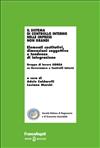
Elementi costitutivi, dimensioni soggettive e tendenze di integrazione
Sintesi del percorso di ricerca intrapreso dal gruppo di lavoro SIDREA su Governance e Controlli Interni, volto a favorire il confronto in merito alle tendenze di integrazione del sistema dei controlli aziendali, contemperando anche le neglette esigenze delle imprese non grandi.
cod. 10388.2


This paper examines possible future improvements of performance audit/performance management relationship in the public sector. Performance measurement, management and audit are strictly linked and influence each other. Scientific literature highlighted the coexistence of two contrasting sides. On one hand the positive side regards, for example, accountability and performance improving. On the other hand, a wrong use of performance audit process might lead to several problems such as: unintended consequences, performance paradox etc. Based on these premises, the research investigates on whether the performance audit really makes the difference, that is, how much performance audit contributes to performance management. This paper does not give an answer to this question but rather highlights the drawbacks and weak points as they come out from the analysis of various studies.

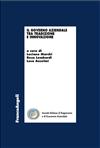
Il termine "governo aziendale" sintetizza la capacità di guidare l’azienda in condizioni di economicità durevole, mediante il coordinamento delle operazioni di gestione. In tale prospettiva, il volume intende porre l’attenzione sul carattere economico del governo aziendale e sul contributo offerto dagli studi di Ragioneria e di Economia Aziendale. Si ritiene, in particolare, che il governo aziendale si realizzi a partire dall’osservazione della dinamica aziendale e ambientale, ma presupponga anche la capacità di generare conoscenza e di guidare i collegati processi gestionali ed organizzativi. L'integrazione informativa e la generazione di conoscenza devono, quindi, guidare i sistemi di governo aziendale all’innovazione dei prodotti e dei processi aziendali, per far fronte al contesto ambientale sempre più complesso e turbolento.
cod. 10388.1

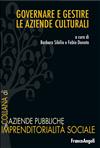
Il volume analizza caratteristiche e modalità di funzionamento delle aziende culturali italiane. L’obiettivo è di favorire una crescita della logica manageriale nelle aziende culturali e di contribuire alla loro capacità di raggiungere le proprie finalità istituzionali – culturali e sociali – in condizioni di sostenibilità.
cod. 377.1

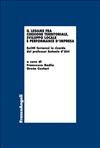
Scritti ferraresi in ricordo del professor Antonio d'Atri
Il volume propone contributi di alcuni giovani studiosi che si sono confrontati sulle tematiche di dibattito più attuale nelle discipline economiche ed economico-aziendali. Una serie di interventi raccolti durante una giornata in ricordo del professor Antonio d’Atri, docente di Ragioneria generale ed applicata presso la Facoltà di Economia di Ferrara.
cod. 365.1088

The recent commitment to an evaluation of the quality of research fostered by the ANVUR - Agenzia Nazionale di Valutazione del sistema Universitario e della Ricerca - National Agency for the Evaluation of University and Research (VQR 2004-2010) raised a number of questions about what is important to be assessed, which aspects are worthwhile (e.g. scientific quality, practical impact, internationalization etc.) and which methods and tools for measuring and evaluating are to be used (peer-reviewed journals, impact factors, journal rankings, etc.). (Coda, 2011; Palumbo, 2011; Dalli, 2012; Rebora, 2012; Sostero, 2012). Besides the quality of research strictu sensu, one of the aspects that could be considered in the evaluation is the so-called "impact" of research. Although neglected in the Italian system, this dimension is present, even if with different connotations, in some of the evaluation systems used in other countries (Palumbo, 2011; De Nicolao, 2013th, b; Sargiacomo, 2013). The purpose of this paper is to analyse and systematize the main national and international contributions dealing with the concept of "research impact" in order to propose the first critical reflections.

The scope of this article is the analysis of the reputation risk management process with the aim to define a conceptual model that could be applied to identify, assess and mitigate this type of risk. This model is based on the analysis of the extant literature on risk management and on corporate reputation. This analysis reveals that the measurement of the reputational risk is a controversial aspect and there are different approaches that could be used to carry out this activity. Furthermore the value of the corporate reputation may be influenced by many variables and a wide range of actions could be implemented to reduce the probability and/or the impact. However the analysis of the existing models for reputation risk management reveals noticeable differences regarding the variables and the methodology that could be used. Based on these findings, our conceptual model proposes a qualitative methodology to assess a set of reputational risk drivers. Moreover the model highlights the importance of the internal control systems and the crisis communication management for risk mitigation. Future steps include the formal validation of this model through an empirical investigation that will be carried out on a selected number of Italian companies.
